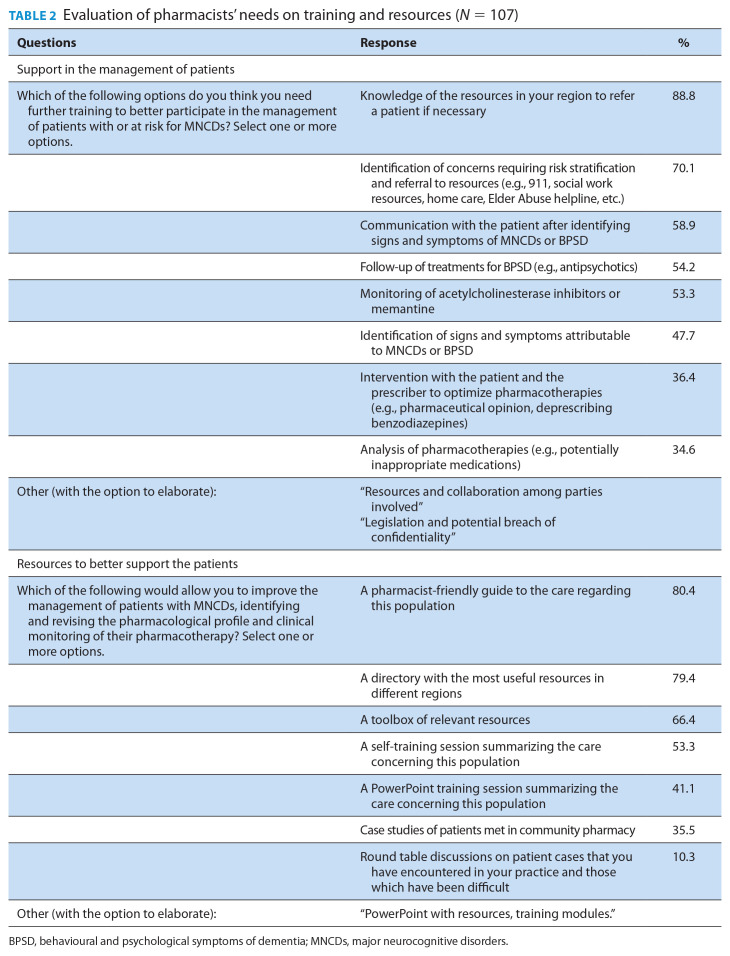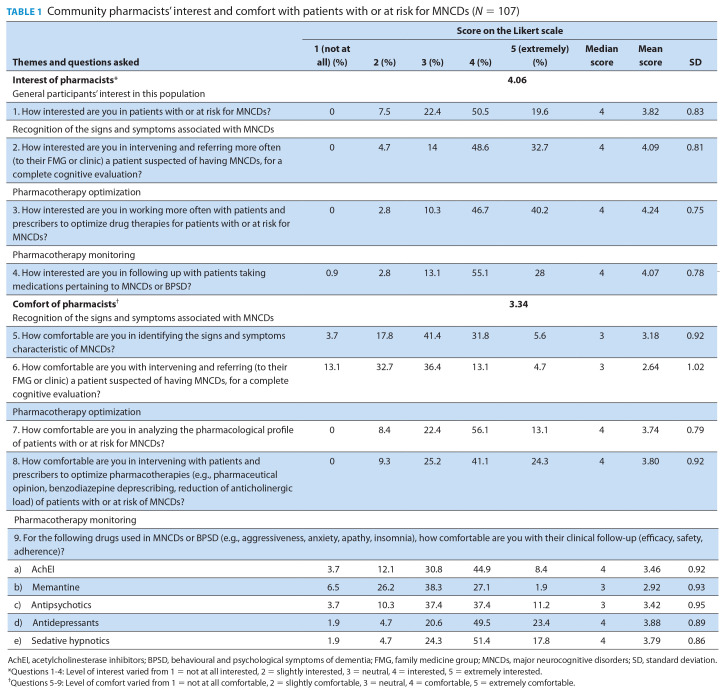What is community pharmacists' level of comfort and interest in managing patients with or at risk of major neurocognitive disorders?
IF 1.7
Q3 PHARMACOLOGY & PHARMACY
Canadian Pharmacists Journal
Pub Date : 2022-10-13
eCollection Date: 2022-11-01
DOI:10.1177/17151635221128552
引用次数: 0
Abstract
Introduction Major neurocognitive disorders (MNCDs) have been forecasted to almost triple globally to 152 million people by 2050. In MNCDs, the brain is impacted so that cognitive processes, such as memory, language, organizational abilities, planning and judgment, gradually deteriorate. With considerable damage, a person’s daily life is impaired, decreasing autonomy and further resulting in requiring assistance with everyday tasks. The Plan Alzheimer du Québec (PAQ) was created in 2013 based on an existing provincial health and social services framework to allow optimal care of patients with cognitive impairments. This initiative equips the Family Medicine Groups (FMGs) of the province to manage patients with cognitive disorders. FMGs are collaborative and interdisciplinary primary care clinics consisting of family physicians, nurses and, more recently, social workers and pharmacists. These professionals provide care and offer resources that aim to sustain the autonomy of patients affected by MNCDs. In line with the PAQ, the Projet GPS is an ongoing pragmatic controlled study funded by the “Fonds de recherche du Québec-Santé.” It aims to measure the impact of pharmacists’ contributions to FMGs regarding patients who either have MNCDs or are undergoing cognitive assessment. FMG pharmacists’ interventions focus on optimizing a patient’s medications. They aim to improve quality of life by managing prescriptions and deprescribing those that are suboptimal. Medication optimization is crucial for older persons to remove medications that may exacerbate their cognitive disorders. Therefore, as a living laboratory-type intervention, the Projet GPS will enable us to explore additional elements of MNCD patients’ journeys, including connecting with community pharmacy. One of a patient’s first contact points with the health care system is the community pharmacy. From a study in 2016, it was seen that about 25% of Canadian seniors typically take 10 or more prescription drugs per year, making community pharmacists an essential player on their health care team. It has been established that the elderly with cognitive problems are more prone to increased risk of adverse drug events. With the notable increase in chronic illnesses within the elderly community, pharmacists are well placed to facilitate the early detection of those who present signs of cognitive impairments and support their health system navigation. Although community pharmacists play a distinct interactive role with patients, which could be advantageous in optimizing the pharmacotherapy of those with or at risk of MNCDs and flagging patients who require medical attention to their FMGs, little is known about their level of comfort and willingness to engage in these activities. Therefore, this project’s goal was to survey pharmacists (both licensed and final-year pharmacy students) practising or wishing to practise in community pharmacy settings about their role among the elderly with or at risk of MNCDs.



社区药剂师在管理患有或有严重神经认知障碍风险的患者方面的舒适度和兴趣程度如何?
本文章由计算机程序翻译,如有差异,请以英文原文为准。
求助全文
约1分钟内获得全文
求助全文
来源期刊

Canadian Pharmacists Journal
PHARMACOLOGY & PHARMACY-
CiteScore
2.50
自引率
26.70%
发文量
43
期刊介绍:
Established in 1868, the Canadian Pharmacists Journal is the oldest continuously published periodical in Canada. Our mission is to enhance patient care through advancement of pharmacy practice, with continuing professional development, peer-reviewed research, and advocacy. Our vision is to become the foremost journal for pharmacy practice and research.
 求助内容:
求助内容: 应助结果提醒方式:
应助结果提醒方式:


